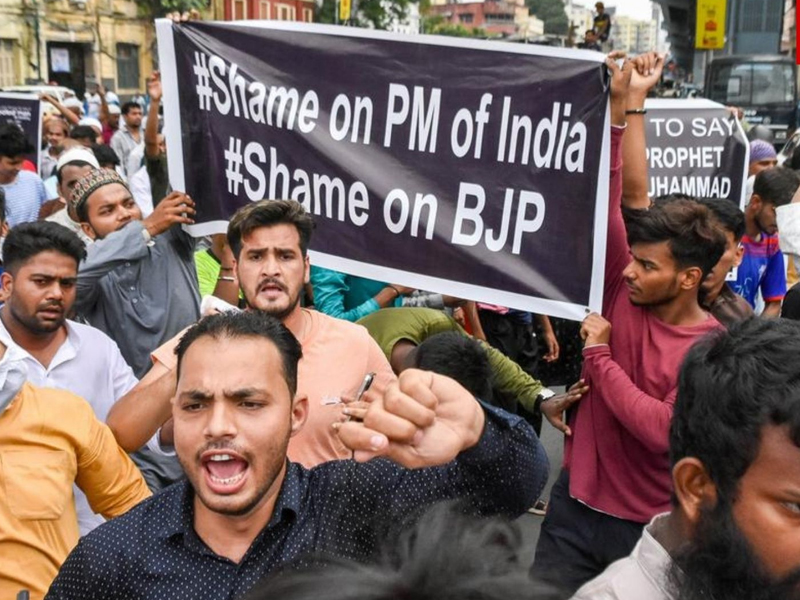Escalating Islamophobia in India: Understanding the complex dynamics

- 146
- 0
In recent years, India has witnessed a concerning rise in Islamophobia, marked by prejudice, discrimination, and violence against Muslims. This surge is deeply rooted in socio-political, economic, and historical factors, perpetuated by misinformation, stereotypes, and systemic biases. Understanding the nuances of this issue is crucial for fostering inclusivity and social harmony in the diverse fabric of Indian society.
One significant contributor to the escalation of Islamophobia is the politicization of religion for electoral gains. Political parties often exploit religious identities to polarize communities, consolidate votes, and gain power. This divisive rhetoric not only deepens communal tensions but also fosters a climate of mistrust and hostility towards minority groups, including Muslims.
Furthermore, the spread of misinformation and propaganda through various media channels exacerbates Islamophobic sentiments among the masses. Social media platforms, in particular, have become breeding grounds for hate speech and fake news targeting Muslims, fueling fear and prejudice in society. The dissemination of false narratives portraying Muslims as 'outsiders' or 'threats' adds to the marginalization and alienation experienced by the community.
Economic disparities also play a significant role in perpetuating Islamophobia. Muslims in India often face socio-economic marginalization, with limited access to education, employment, and other opportunities. This economic disenfranchisement not only exacerbates existing social inequalities but also reinforces negative stereotypes and biases against Muslims, portraying them as 'backward' or 'inferior.'
The resurgence of Hindu nationalism in India further amplifies Islamophobic attitudes, as it promotes an exclusivist vision of the nation that marginalizes religious minorities. Policies and legislations perceived to be discriminatory, such as the Citizenship Amendment Act (CAA) and the National Register of Citizens (NRC), have sparked widespread protests and heightened tensions within the country, particularly among Muslim communities.
The perpetuation of stereotypes and cultural stereotypes in mainstream media also contributes to the normalization of Islamophobia in Indian society. Muslims are often depicted as 'violent,' 'backward,' or 'anti-national,' reinforcing negative perceptions and prejudices. Such representations not only undermine the diversity and complexity of Muslim identities but also perpetuate harmful stereotypes that fuel discrimination and violence.
Combatting Islamophobia requires a multifaceted approach that addresses its root causes while promoting interfaith dialogue, tolerance, and understanding. Education plays a crucial role in challenging stereotypes and fostering empathy and respect for religious diversity. Moreover, political leaders and media organizations must refrain from exploiting religious identities for divisive purposes and instead promote inclusive narratives that celebrate India's pluralistic heritage.
Civil society initiatives, including grassroots movements and interfaith dialogue forums, are also essential in promoting social cohesion and countering Islamophobia at the community level. By fostering empathy, understanding, and solidarity across religious lines, these initiatives can help build bridges and promote peaceful coexistence in Indian society.
In conclusion, the increasing Islamophobia in India is a complex issue fueled by political, economic, and socio-cultural factors. Addressing this phenomenon requires concerted efforts from all segments of society to challenge stereotypes, promote inclusivity, and uphold the principles of equality and justice for all citizens, regardless of their religious beliefs. Only through collective action and solidarity can India overcome the scourge of Islamophobia and build a more inclusive and harmonious society for future generations.
Published in The Daily National Courier, May, 07 2024
Like Business on Facebook, follow @DailyNCourier on Twitter to stay informed and join in the conversation.

















































